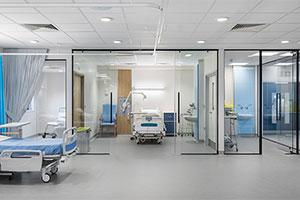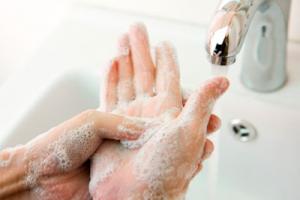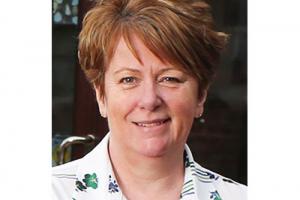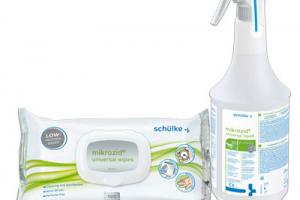Infection prevention and control specialist GAMA Healthcare, best known for hospital disinfectant range Clinell, has built-in a state-of-the-art…
Three Key Tenets of Outstanding Infection Control
Ben Kilbey, Business Development Manager at Spearhead Healthcare, on achieving outstanding infection control procedures in your care home…
Every care manager knows that a systematic, structured approach to cleaning is the only way to keep infections at bay and to protect residents and carers effectively – as well as your own reputation.
Based on our extensive experience of helping hundreds of care homes like yours implement a best-practice infection control programme, here are our three guiding principles to set you on the right course.
1. Don’t cut corners with products
It’s simply not possible to cut corners in infection control especially when it comes to the products you choose. 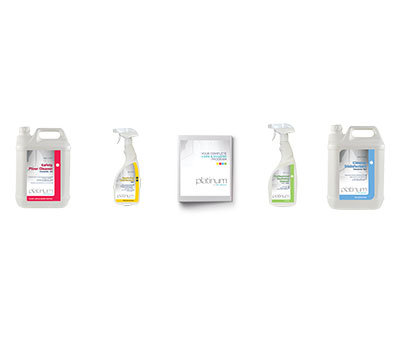
Relying on domestic cleaning products, like furniture polish and bleach, is poor practice in care homes. It’s imperative to use BS EN1276-certified specialist products, like the ones included in our Platinum Plan, which are designed for the care environment and kill bacteria such as MRSA, Salmonella, E.Coli and the flu virus.
Daily use of bactericidal and sporicidal cleaning products should be combined with a monthly deep clean, and a different set of chemical-based products are required to get an infection outbreak under control.
That said, there are sensible ways of saving money without compromising on quality. For instance, providers can keep ‘cost-in-use’ to a minimum by purchasing products as concentrates, and training staff to use specialist diluting equipment correctly. As one of our customers Sophie Parker, Head Housekeeper at Dalawoodie House Nursing Home in Dumfries, reminds us: “Product overuse is as bad as underuse!”
You can also take steps to consolidate chemical products, which is a key COSHH stipulation. For instance, our Multi-Surface Spray Polish is ideally suited for use on mirrors, furniture and metal surfaces such as stainless steel.
2. Get your infection control processes in shape
Every process involved in cleaning the care home should be underpinned by a clearly thought-out and consistent strategy.
This is where we often step in, helping homes to create and implement best-practice routines and procedures for staff, residents and visitors alike. This includes detailed guidelines for product usage and storage, usage of personal protective equipment (PPE), cost sheets, template cleaning schedules, logs and risk assessments. Delivering expert COSHH training for staff is also a core part of this.
We’re strong advocates of colour-coding products, equipment and even paperwork to ensure that staff have clear visual reminders of which item to use where and which guidelines to follow.
I can’t emphasise enough how important it is to include every area of the care environment in your cleaning strategy, from handwashing and laundry to fabrics (even curtains) and moving and handling equipment.
3. Take the lead on compliance
Regulatory compliance in the care sector is not to be taken lightly. Thorough documentation demonstrates your commitment to maintaining the highest possible cleaning standards, strict accountability, transparency and willingness to communicate openly with all stakeholders. Indeed it will ensure peace of mind during any inspection.
Rigorous documentation isn’t just for when an outbreak strikes or when you are under particular scrutiny. It may sound gloomy but it is really true that those providers who prepare for disaster will recover faster! In the event of an outbreak, you’ll need to show regulators, families and local authorities that you followed the correct procedures and did all within your means to contain it. Also, compliant record-keeping reassures everyone that you are doing everything possible to prevent it from reoccurring.
Our documentation package for Platinum Plan customers provides useful templates, logs and records that all help reduce the compliance burden for busy care managers.
See spearheadhealthcare.com for more advice on infection control


